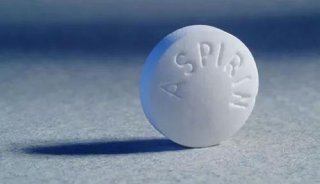大剂量服用阿司匹林无益仅有害
一项HORIZONS-AMI(血管成形术和支架治疗急性心肌梗死一致性结果)临床试验表明,行直接冠状动脉介入术的ST段抬高心梗病人,出院服用大剂量阿司匹林出现大出血并发症的几率比给予小剂量的阿司匹林患者高,并且大剂量的阿司匹林并没有额外的防止缺血性事件发生的保护作用。
在临床指南中,阿司匹林的推荐剂量从82mg到325mg不等,那是因为之前还没有任何一项前瞻性的随机对照研究来证实究竟哪一种剂量对这些病人最有益处。临床医生重视阿司匹林导致的出血并发症,但却没做阿司匹林最有益剂量的相关实验。这项研究的作者,纽约西奈山医学院RoxanaMehran博士,在接受记者的采访时说,“我认为药物不仅要能够防止缺血性事件发生,同时也不该将病人置于出血并发症的危险中。”
这项HORIZONS-AMI研究发表在2012年12月的《美国心脏病学学院心血管介入杂志》[JACC Cardiovasc Interv 2012 Dec]的《心脏介入》板块上:关于2289名术后出院病人服用低剂量阿司匹林(<200mg/天)和562名服用低剂量阿司匹林(>200mg/天)三年预后对比分析。但是这毕竟是一项回顾性分析,可能受制于此类研究具有的混杂因素,比如,高剂量阿司匹林组更可能是行了经股动脉心脏介入术而不是经桡动脉心脏介入术,会置入更长的支架,有更长的X线透视检查时间,相对更大的容积,同时缩短了的发作后入院急诊室到首次球囊扩张时间。
研究中有个发现比较有趣:高剂量的阿司匹林并没有带来任何形式的缺血保护作用,相反却将病人暴露于更多的风险中。Mehran博士指出,这次发现结果虽然可喜,但这项研究还有一些限制因素,它并不是一项前瞻性的临床随机对照研究。确定阿司匹林的剂量并不是这项研究的主要目的。所以它受限于一些无法预测的混杂因素,而且临床医生们已经知道给患者予高剂量阿司匹林和低剂量阿司匹林存在很大的差异。
所以研究人员在一项倾向评分多元分析中调整了患者基线特征,研究显示:出院病人给予高剂量阿司匹林会带来接近三倍的大出血发生率(风险比2.80,95%置信区间为1.31-5.99)。大出血发生率的提高在出院后两个月就以显现,在整个三年的随访期中持续增长,但是高剂量阿司匹林并没有减少缺血性事件的发生。
这项研究又一次表明,我们应该多多关注急性心梗患者的风险水平,因为我们已经知道这些患者不仅有缺血性风险还有出血性风险。必须根据出血风险去平衡,以确保我们选择了合适剂量的阿司匹林。
HORIZONS-AMI研究没有使用具有更强抗血小板作用的药物,如替卡格雷(商品名Brilinta,阿斯利康制药)及普拉格雷(商品名Effient礼来制药),但是这些药物对临床医生触手可及,所以很有必要把注意力放在低剂量的阿司匹林上,那么就需要前瞻性的随机对照临床试验来证实出院带药时究竟哪种剂量的阿司匹林对ST抬高的急性心梗患者、非ST抬高急性心梗患者以及不稳定心绞痛患者合适。
![]()
More bleeding, no extra ischemic protection with high-dose aspirin in HORIZONS-AMI
Ann Arbor, MI - An analysis of the Harmonizing Outcomes with Revascularization and Stents in Acute Myocardial Infarction (HORIZONS-AMI) trial has shown that patients with ST-segment-elevation MI (STEMI) undergoing primary PCI discharged on high-dose aspirin have higher rates of major bleeding than those discharged on low-dose aspirin. The high-dose aspirin also failed to provide any additional protection against ischemic events .
"In the clinical guidelines, the recommended dose of aspirin ranges anywhere from 82 mg to 325 mg because we don't really have any prospective, randomized study showing which dose is actually best for these patients, which is kind of interesting given that we are now putting so much of our attention on the bleeding complications," Dr Roxana Mehran (Mount Sinai School of Medicine, New York), one of the study authors, told heartwire. "I think it's important that agents not only protect you against ischemia but also don't expose you to the harm of bleeding complications."
The HORIZONS-AMI analysis, published in the December 2012 issue of JACC: Cardiovascular Interventions, compared three-year outcomes among 2289 patients discharged on low-dose aspirin (<200 mg/day) and 562 patients treated with high-dose aspirin (>200 mg/day). The analysis is a post hoc one, however, and subject to the possibility of confounding associated with such reports. For example, patients discharged on high-dose aspirin were more likely to undergo femoral PCI (vs radial) and had longer stents implanted, longer fluoroscopy times, and more contrast volume, as well as shorter symptom onset and door-to-balloon inflation times.
"The intriguing finding we found in this study was that the high-dose aspirin did not provide any benefit in terms of ischemic protection and exposed the patient to more risk," said Mehran. "Now, having said that, there are some limitations attached to this, as this was not a randomized, prospective clinical trial. The dosing of aspirin was the not the intent of the HORIZONS-AMI study. Therefore, it is subject to unmeasured confounders, and we already know there was a big difference in the patients prescribed high-dose aspirin and those given low-dose aspirin."
That said, the researchers adjusted for these baseline patient characteristics and showed in a propensity-score-adjusted multivariate analysis that discharge on high-dose aspirin was associated with a nearly threefold increased risk of major bleeding (hazard ratio 2.80; 95% CI 1.31-5.99). The increase in major bleeding occurred within the first two months following hospital discharge but continued to increase over the entire three-year follow-up period. High-dose aspirin was not associated with a reduction in any ischemic events.
"Once again, the moral of the story is that we really need to pay a lot of attention to the level of risk of our STEMI patients, understanding that these patients are at risk of bleeding and ischemic complications," said Mehran. "We have to balance that, and that balance may very well include making sure we choose the right dose of aspirin depending on their risk of bleeding."
Mehran noted that the HORIZONS-AMI study did not use the more
potent antiplatelet agents, such as ticagrelor (Brilinta, AstraZeneca)
or prasugrel (Effient, Lilly), but with these agents available to
clinicians there is an increased need to focus on using lower-dose
aspirin. There is also a need for randomized, prospective trials
evaluating different doses of aspirin on discharge in patients with
STEMI, non-STEMI, and unstable angina, she added.
-
科技前沿









